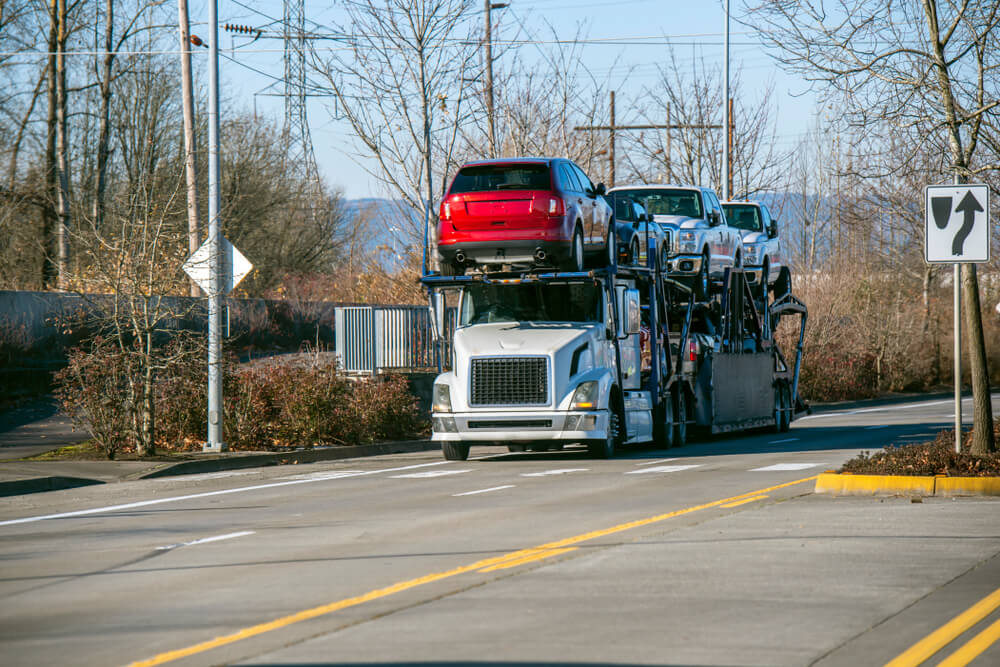Essential Guidelines for Safe Transportation and Finding the Best Service

When it comes to moving valuable vehicles or heavy equipment, finding the best service is critical to ensuring a smooth and secure transportation experience. Reliable shipping services combine experience, proper equipment, and customer-centric policies to provide peace of mind during what can otherwise be a complicated process.
Why Reliability Matters in Vehicle and Equipment Shipping
Shipping a car or heavy equipment is not simply a matter of picking a carrier; it involves thorough planning, trust, and attention to detail. Whether you’re shipping a personal car across Idaho or transporting industrial machinery via container, understanding essential guidelines for safe transportation can save you time, money, and stress. For example, when transporting vehicles in Idaho, a state known for its diverse terrain and remote areas, reliable car shipping companies have specialized knowledge about local conditions. This expertise helps in navigating logistical challenges such as weather, road restrictions, and delivery timing.
Similarly, heavy equipment transportation requires understanding weight limits, securing loads correctly, and choosing appropriate containers or trailers. Mishandling or shortcuts can cause damage, legal issues, or costly delays. This makes the role of a trustworthy shipper invaluable.
Essential Guidelines for Safe Transportation
Understand Shipping Options:For cars, options include open or enclosed carriers, each with pros and cons. Enclosed carriers provide better protection from weather and debris but cost more. For heavy equipment, container shipping is often preferred for overseas transport or when long-term protection is needed. Flatbed trailers are common for overland routes but require proper tie-downs to prevent shifting.
Accurate Weight and Dimensions: Especially for heavy machinery, precise measurements and weight assessments are crucial. Overweight or oversized loads may need special permits and escorts. Inaccurate information can lead to fines or shipment delays.
Proper Loading and Securing: Whether it’s a car or industrial equipment, improper securing is a leading cause of damage during transit. Experienced shippers use industry-standard tie-downs, padding, and bracing techniques to protect cargo.
Detailed Inspection and Documentation: Conduct a thorough inspection before and after shipping. Take photos and note any existing damage to avoid disputes later. Reliable companies provide detailed condition reports and clear communication channels.
Transparent Pricing and Contracts: Get written estimates that break down costs, including potential additional fees. Read the contract carefully for cancellation policies, delivery windows, and liability terms.

Finding the Best Service in Idaho and Beyond
Idaho’s geography with mountainous regions and rural roads requires carriers that are familiar with the local terrain and can adapt to unexpected challenges. Using local reviews and references can help narrow down reputable providers. Additionally, specialized transport companies often offer tailored services, such as enclosed car shipping or heavy equipment containerization, to meet specific needs.
Online platforms like the Better Business Bureau or Transport Reviews can provide unbiased customer feedback. Combining this data with direct company inquiries and quotes helps in making an informed decision.
The Role of Container Shipping for Heavy Equipment
Container shipping is increasingly favored for moving heavy equipment, especially for international or long-distance transport. Containers provide a controlled environment, protecting machinery from weather, theft, and damage during handling.
According to The International Maritime Organization, adherence to international container standards is vital for safety and efficiency. Choosing a shipping company with experience in container logistics ensures compliance with these guidelines, reducing risk.
For more detailed information on regulations and shipping best practices, the Federal Motor Carrier Safety Administration (FMCSA) offers comprehensive resources and safety guidelines.
Additional Tips for Stress-Free Shipping
Plan Ahead: Book your shipment well in advance to secure availability and better rates.
Prepare Your Vehicle or Equipment: Remove personal items from cars and secure or drain fluids in machinery if required.
Communicate Clearly: Maintain open lines of communication with your shipper for updates and contingencies.
Consider Insurance: Standard carrier insurance may be limited; purchasing additional coverage can protect your investment.
Conclusion
In summary, when it comes to transporting vehicles or heavy equipment, prioritizing reliability and safety is non-negotiable. Finding the best service involves careful research, understanding essential guidelines for safe transportation, and choosing carriers with proven expertise and transparent practices. Whether shipping a prized vehicle across Idaho or moving heavy machinery overseas in a container, informed decisions help ensure your assets arrive intact and on schedule.
